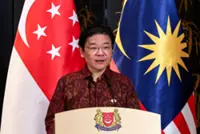NEW DELHI (The Straits Times/Asia News Network): Three Singapore universities feature in a list of around 260 top international academic institutions that India has approached to initiate close academic linkages with local universities.
India’s academic regulator, the University Grants Commission (UGC), is encouraging Indian institutions to collaborate with foreign universities to offer joint and dual degrees, as well as twinning programmes, rules for which were announced in May.





